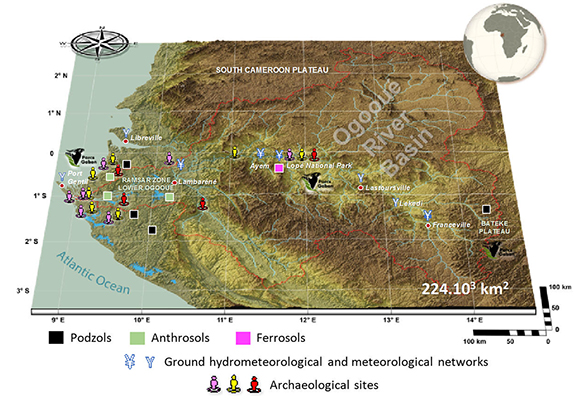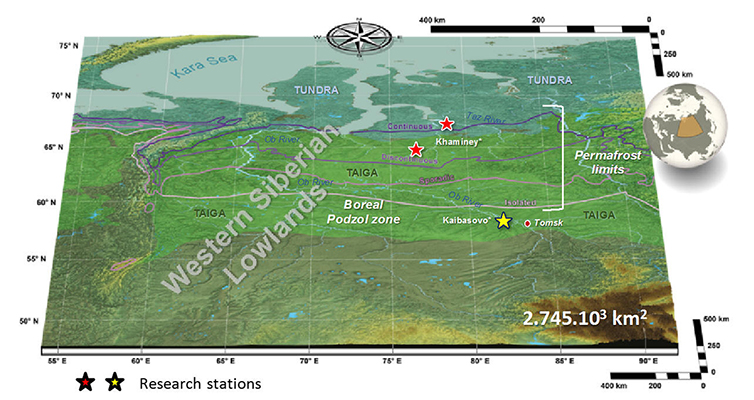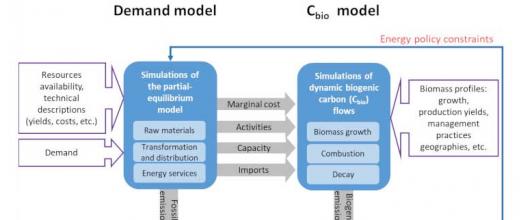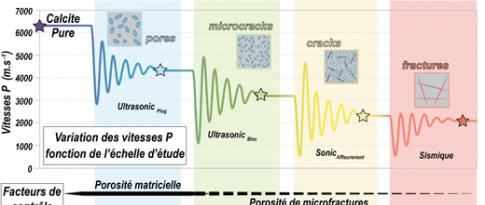Today, the impact of climate change and human activities on the evolution of landscapes and water resources is a major challenge. Predicting it requires dedicated tools capable of evaluating, 100 years ahead, the consequences of different scenarios on watersheds and groundwater.
To this end, IFPEN is developing modeling approaches targeting erosion-transport-deposition phenomena combined with surface and subsurface flows. To do so, it is drawing on its longstanding expertise in the field of Earth sciences, particularly stratigraphic modeling[1] and multiphase transport in complex porous media. The models under development are designed to predict the evolution of soil erodibility, sediment flows in rivers, potential flood zones, quantitative and qualitative aquifer recharge, etc. The objective is to define risk maps that can be used by local players to adapt risks prevention plans and regional planning projects.
Of course, the “critical zone”, which extends from the canopy to the bedrock, lies at the heart of these problems. It is exposed to soil erosion, that can induce catastrophic mud slides during extreme rainfall events. Moreover, erosion leads to the loss of organic matter, causing disruption to ecosystems. Hence its characterization is essential. Modeling these phenomena involves understanding the influence of vegetation cover and human occupation, via a scientific approach hinged around the study of recent past systems (from -10,000 years to the present day)[2].
Selected within the framework of the “Towards Sustainability of Soils and Groundwater for Society” call for projects issued by the Belmont Forum, the international VULCAR-FATE projecta [3] was launched in June 2021 with two major objectives:
- Study two ecosystems (figure), one in Gabon and one is Siberia, in order to evaluate the impact of recent climate and land use changes on the water balance and sediment and organic matter transport, as well as on soil degradation potentially generating atmospheric carbon emissions;
- Define evolution scenarios for periods ranging from 30-100 years ahead with a view to adapting local policies.
IFPEN's researchers will be responsible, firstly, for modeling geological processes and water and sediment flows using DionisosFlow™ and, secondly, characterizing soil organic matter using the Rock-Eval® method. The models developed will make it possible to integrate all of the data acquired during the project.
Click on pictures to enlarge


a- Global change impact on vulnerable carbon reservoirs: carbon sequestration and emissions in soils and waters From the Arctic To the Equator: an interdisciplinary project, coordinated by the IRD (French Research Institute for Development) and bringing together partners from six countries (France, USA, Russia, Gabon, Spain and Switzerland).
Publications:
[1] Csato I., Catuneanu O., Granjeon D. (2014). Journal of Sedimentary Research, 84. http://dx.doi.org/10.2110/jsr.2014.36.
[2] Bremond L., Oslisly R., Sebag D., Bentaleb I., Favier C., Henga-Botsikabobe K., Mvoubou M., Ngomanda A., de Saulieu G., Ecotrop Team (2021). The Holocene, 33(7). https://doi.org/10.1177/09596836211003230.
[3] VULCAR-FATE project presentation video: https://www.youtube.com/watch?v=BOkhcuJocB0
Scientific contacts: elisabeth.bemer@ifpen.fr, Didier Granjeon, david.sebag@ifpen.fr and benoit.chauveau@ifpen.fr
You may also be interested in
Characterization and modeling of the facies(a)-eogenesis(b) couple, initial state of carbonate reservoirs (HDR 2017)
Carbonate reservoirs present significant heterogeneities (in terms of types and scales) associated with the biological origin of sedimentsc, as well as t








